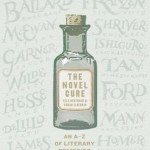 Title: Back to Moscow (Goodreads)
Title: Back to Moscow (Goodreads)
Author: Guillermo Erades
Published: Scribner, 2016
Pages: 371
Genres: Contemporary
My Copy: Library Book
Buy: Amazon, Book Depository (or visit your local Indie bookstore)
Martin has just arrived in Moscow, on the advice of an old girlfriend (she thought it would be easier to score a scholarship from a Russian university). He plans to finish his studies and write a thesis on the Russian heroine, exploring the difference between Russian literature and the western world. However, it is the early 2000s and Moscow is changing rapidly, and the appeal of nightclubs, woman and cheap alcohol is distracting him from his study. Guillermo Erades’ debut novel Back to Moscow is a booze soaked exploration of an aspiring writer in a new setting.
Do not get me wrong, I love those novels that are set in New York that follow to wannabe writers that are often difficult men. I cannot get enough of those types of stories but this is so much better, for starters this is about Russian literature. Back to Moscow thrilled me from start to finish because of the setting and the exploration into Russian classics that appeared at the start of every part.
I am normally am hesitant in picking up a book set in Russia by a western author, but I seem to have decent luck with Spanish authors. Granted I have only read Encyclopedia of a Life in Russia by Jose Manuel Prieto and now Back to Moscow but both have impressed me greatly. Maybe my hesitancy should be directed towards American authors rather than the entire western society. I find the lack of knowledge of Russia often reflects poorly on the author.
With Back to Moscow, the whole novel was structured around understanding Russia and its literature and this is a quest that I am personally on as well, so my gushing review is inevitable. I also enjoy reading about terrible people and Martin fits into that category but I never thought of him as an anti-hero. I had some empathy for him, partly because I have made so many of those stupid mistakes. I have put my desire for pleasure over the feelings of others and as result hurt myself and the people I love.
This does not mean I sympathise with Martin; I did get frustrated with every selfish action but I could relate (as much as I hate to admit it). Add that to the mix of an antisocial writer with a passion for Russian literature, and you have someone that closely resembles me (although the bad life choices are over for me, thankfully). I do wonder if Back to Moscow is at all autobiographical, because the way he writes makes me think this is the case.
I like the focus on exploring the differences between Russia and western society. This becomes the focus of the novel. It is this exploration that allows people to try and gain a better understanding of the differences. One of Martin’s friends even said. “You Westerners are always angry because you want to change everything in life. We Russians are always sad because we know that most things cannot be changed.” This quote really stuck with me in really understanding the differences. There is so much more to understand, but I am working on an essay on Russian literature (stay tuned).
“Russia is lost” she continued. “First we had God. Then we had Lenin. Now we have nothing.”
Without giving away much about the plot, I will say that this debut novel impressed me greatly. There is a definite affection for Russia and the classics coming from the author and I think that is the appeal. The novel ends with the perfect metaphor for the entire story and Russia literature itself.
“In Metro systems around the world, a screen about the platform shows the time left until the arrival of the next train. Five minutes. Four minutes. Three minute. Two minutes. One minute. Then the countdown stops and you feel the breeze and you hear the rattle of a new train approaching through the tunnel.
Not in Moscow.
In Moscow’s metro, the electronic counter about the platform shows the time that has passed since the departure of the last train. With unnecessary precision, the seconds keep adding up one by one, informing you not about the train to come, but the one you’ve missed, the train that would be carrying you, if only you arrived earlier. But that train is for ever gone. You don’t know when the next one will arrive.”
The back of the novel compares Guillermo Erades to Ben Lerner and Bret Easton Ellis, while I can see the comparison with Larner, I debate the other. I think the only thing Erades and Ellis have in common is their ability to write a difficult men. Back to Moscow is one of those books that I wanted to turn back to page one and re-read straight away. I cannot say this is a novel that will appeal to everyone, it appealed to me for the reasons I have mentioned. I do not think there is anything profound to get from this book, but the quotes I have added to this review are lines that stuck with me. I find it hard to review this critically because I got so much out of it personally. If you have a love of Russia and its literature then maybe you need to give this book a go as well.











Leave a Reply